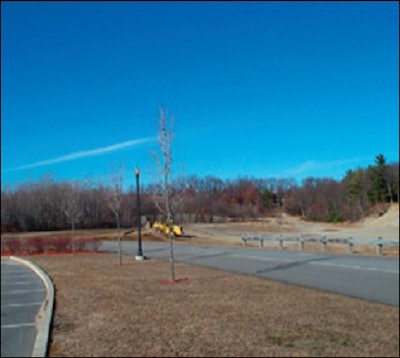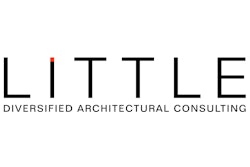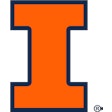Open-Space Grant Funds Turn Dreams Into Realities In Rhode Island

Residents of the town of Smithfield, R.I., have been waiting five years for good news like this. Since its phase-one opening in 1997, Deerfield Park - the town's center of recreational activity - has seen little improvement other than four soccer fields and the development of the walking trails that weave their way through the park's 98 acres. While phase-two plans are yet to be decided, possible projects include a baseball field, softball fields, soccer fields, a skate park, expanded parking lots and further expansion of the park's walking trails. "Soccer is a big sport in this town," says Chris Hawkins, Smithfield's director of planning and economic development. "But the fields we have right now don't accommodate our need."
But with the December announcement that Smithfield has been awarded a $300,000 open-space recreational development grant by Rhode Island's Department of Environmental Management (DEM), the town has taken a significant step toward satisfying its recreational shortcomings. "This money will be used for phase two," says Hawkins. "Two-thirds of the park still needs improvements."
Smithfield is one of 29 Rhode Island communities to benefit from the state's $6.5 million open-space recreational development grant program. Funded by a $5.4 million bond issue approved by Rhode Island voters in 2000 and $1.2 million in federal funds from the Land and Water Conservation Fund, the grants are designed to enhance the state's efforts to preserve open space and provide recreational opportunities. The DEM invited municipalities to submit grant applications for major and minor recreation projects, receiving a total of 84 applications. Forty-six of these were awarded, allowing for more than 100 acres of land - from urban playgrounds to scenic beachfront - to see improvements over the next several years.
A stipulation of the grant program requires recipients to match funds, meaning that Smithfield will have $600,000 available to improve Deerfield Park. Smithfield officials are counting on the passage of an $8.6 million bond issue package - set to go before town voters on April 2 - to raise a matching contribution. In addition to the $300,000 allocation for Deerfield Park, the bond proposal includes $5.5 million to upgrade the local high school, $2.2 million to remodel an existing fire station and build a new facility, and $600,000 to expand the town's senior center, which is located within Deerfield Park.
Also the recipient of a $300,000 grant, the nearby town of Johnston has resorted to a different approach in responding to its community's recreation needs, the greatest of which is a senior center project. Town officials invited local agencies to join the municipality in creating a private, nonprofit organization called the Johnston Community Association. The association submitted four grant proposals to the state, receiving funding for its first-priority project. "A lot of activities will be funded by this $300,000," says John Longiaru, Johnston's recreation planner. "We plan to have a full-size soccer field, a half-size soccer practice field, basketball courts, four tennis courts, bocce courts and playgrounds."
According to Longiaru, the grant will help Johnston make up for a severe lack of recreational opportunities. "We don't have any of these types of facilities here in town," Longiaru says. "We have a couple of school gymnasiums that we use for some of our programs, but no place that we are able to manage as a community center."
Johnston residents have long supported public recreation facilities, but Longiaru says that a bond proposal such as the one in Smithfield would place too great of a financial burden on the community. "Although we would be making up for deficits, it would really put pressure on the tax dollar," he says. The ultimate goal of the association remains to build a multimillion-dollar senior/ community recreation center, but for now Johnston residents are content to focus their efforts on developing outdoor recreation facilities on the proposed center's site. "We're trying to do our part on the recreation side by finding money for some of the project's other facilities," says Longiaru. "It's definitely worth a shot to put an application together. Sure, there's competition among the municipalities, and obviously, you'd like to see everything get done. But when your big project gets funded, that means that something's working right."
In some communities, where parks and recreation projects are among the lowest priorities within municipal budgets, grant writing has emerged as a most lucrative means to obtain funding. Cheri Hall, recreation director for the town of Burrillville, can attest to the benefits of such efforts after successfully landing a $300,000 grant to massively overhaul Burrillville's Hauser Memorial Park. The park currently houses three undersized softball fields and a Little League baseball field. "The men play there, but they really shouldn't," says Hall. Plans to renovate Hauser Memorial Park were postponed when, in 2000, Burrillville teamed up with the DEM to secure and purchase 200 acres of beachfront property at nearby Spring Lake. "We've had this project on our capital improvement agenda for eight years," Hall says. "But it took a back seat when we were working on the Spring Lake beach project." While the purchase helped preserve natural wetlands and appease passive recreation enthusiasts, it did nothing to advance the town's active recreation needs.
Hall believes the extensive improvements to Hauser Park will satisfy active recreation participants. The two-year project includes removing the baseball field from the park and building a new one at another facility. The field will then be replaced with a tee-ball field, allowing the softball fields to be enlarged to regulation size. Other park additions include a basketball court, a tennis court, a walking track and rest rooms. Field and court lighting will be installed at both Hauser and the new Little League baseball facility.
The ambitious project doesn't come cheap, though, carrying with it a $665,000 price tag. Burrillville intends to match the grant award with a combination of funds from its capital improvement and recreation budgets, leaving a shortfall of approximately $65,000. Hall is confident, however, that the improvements will continue as planned. "The town council has been very supportive," Hall says, adding that she plans to apply for other grants to obtain the remaining funds. "As long as I find the money, they don't mind."
Perhaps it was with a similar trust that DEM officials awarded the town of North Providence - in conjunction with neighboring Providence - a $600,000 grant, the largest available. Neither of the partnering municipalities have a park they would like to renovate, but instead applied for funds to purchase a 16-acre property that straddles their borders. The goal is to turn the land - which is zoned for manufacturing use - into a multipurpose recreation area. "Rather than allow manufacturing to occur on a site that abuts large residential neighborhoods, we would prefer to preserve it as open space," says Leo Perrotta, North Providence's planning director. "Our half of the site is more sloping and serves as a buffer zone to the adjoining residential property. Because the Providence side is more accessible, most of the recreational activities will probably take place there."
At the time of this writing, the municipalities were gathering appraisals on the property's value and preparing to negotiate a sale price with the owner. "Once that's done, we can figure out exactly how we're going to lay everything out," says Perrotta. "There are sections that could be used for softball fields and soccer fields. Then there are other wooded sections that could be used as hiking trails. At this point, we have a wide variety of options."




































